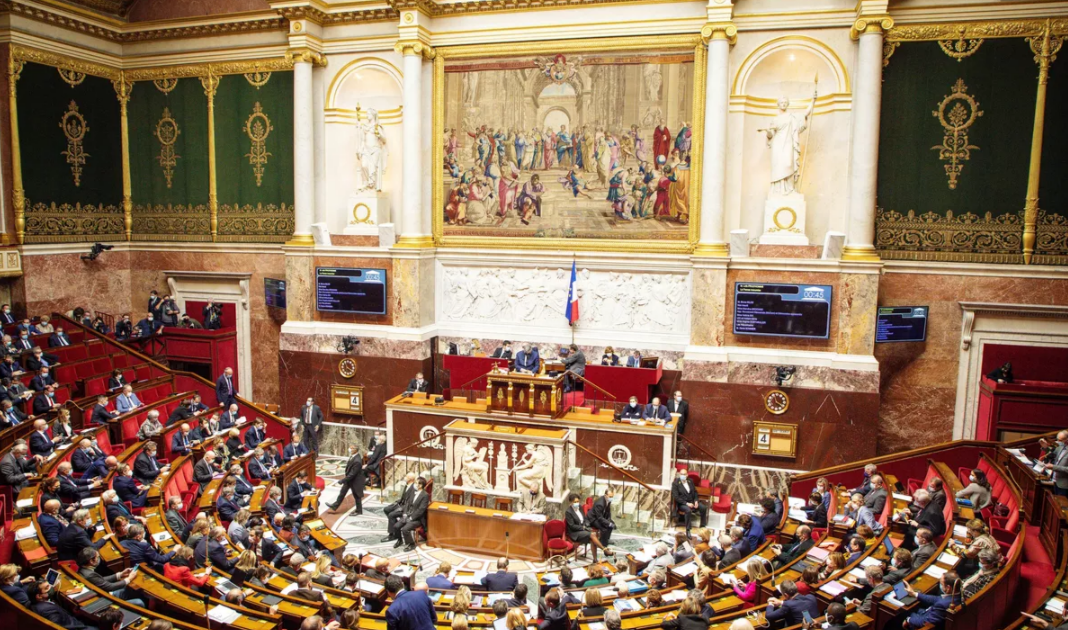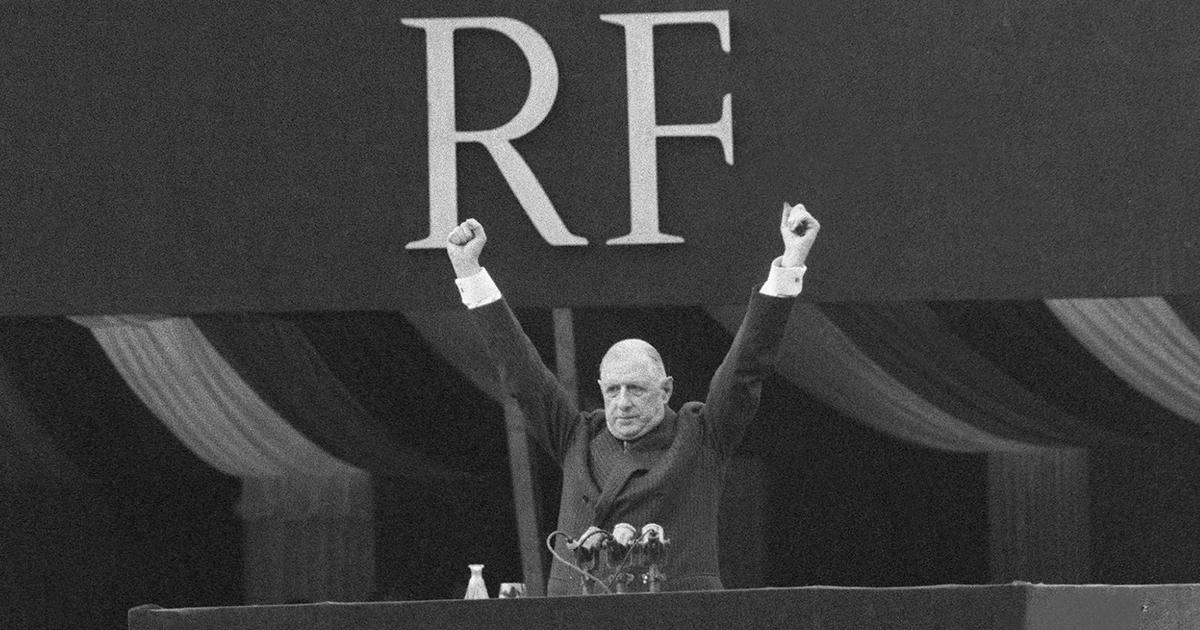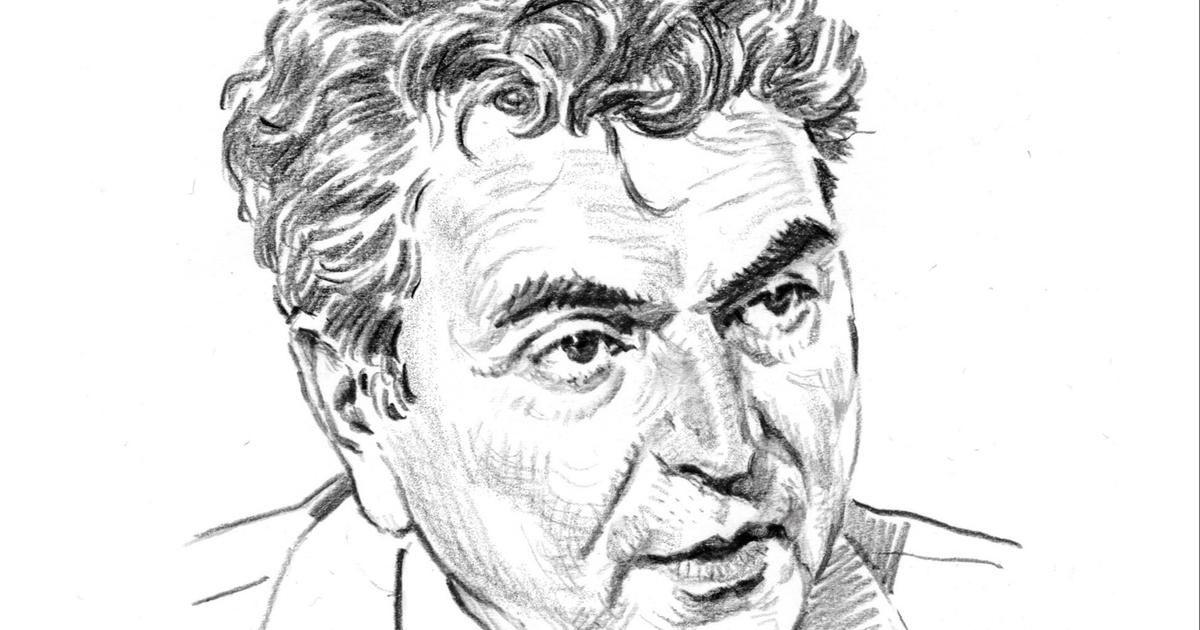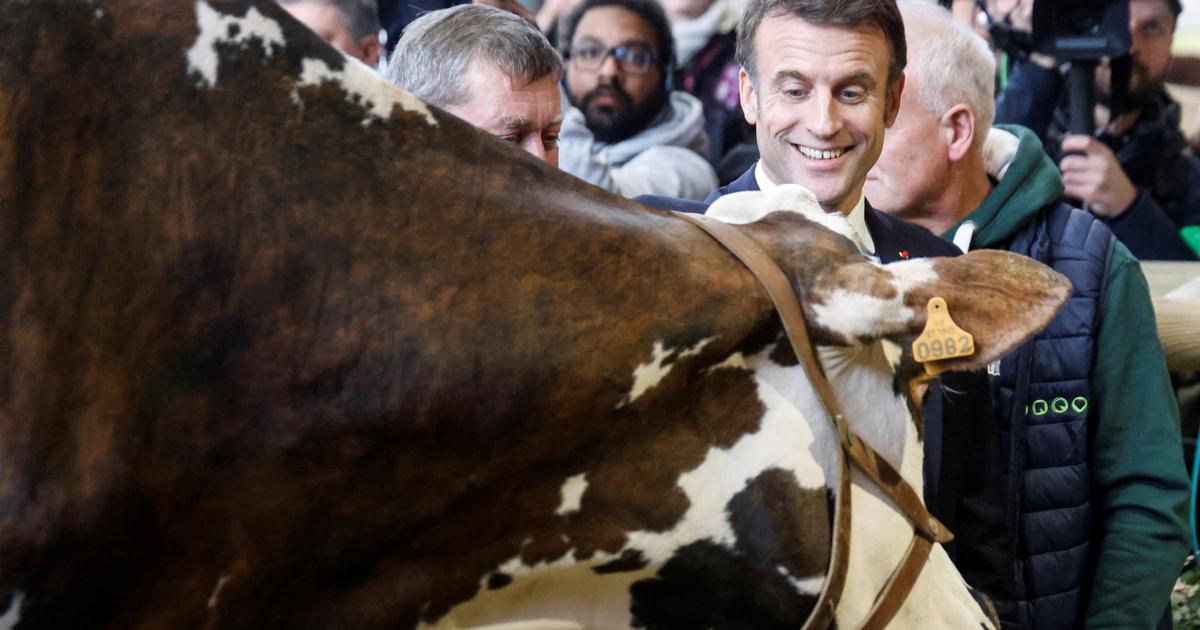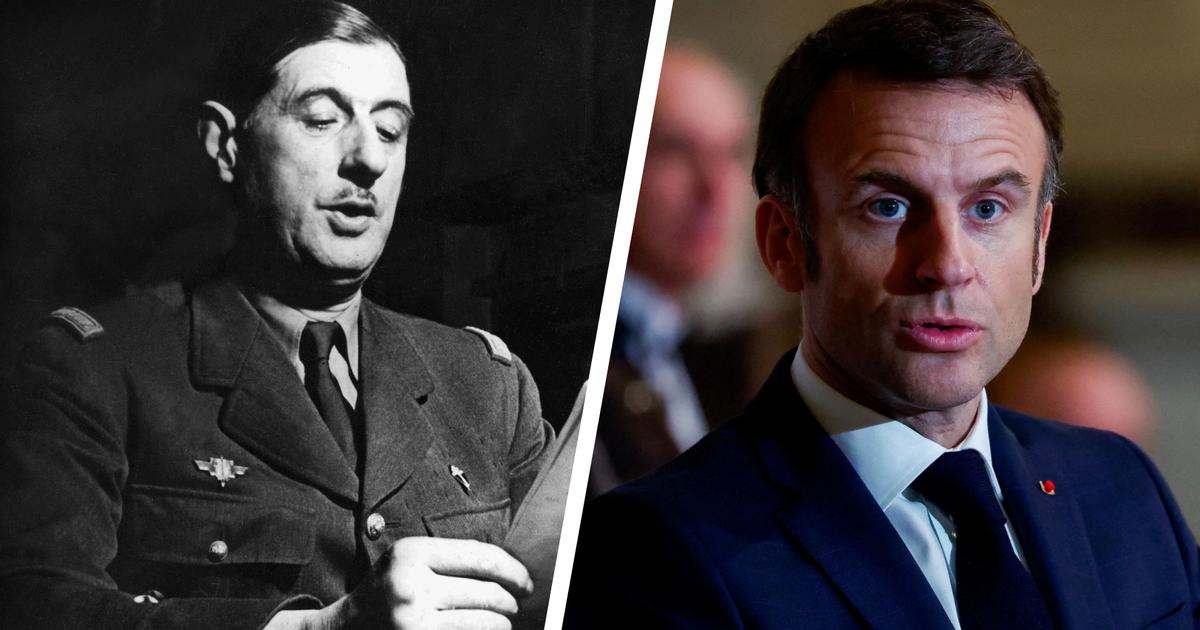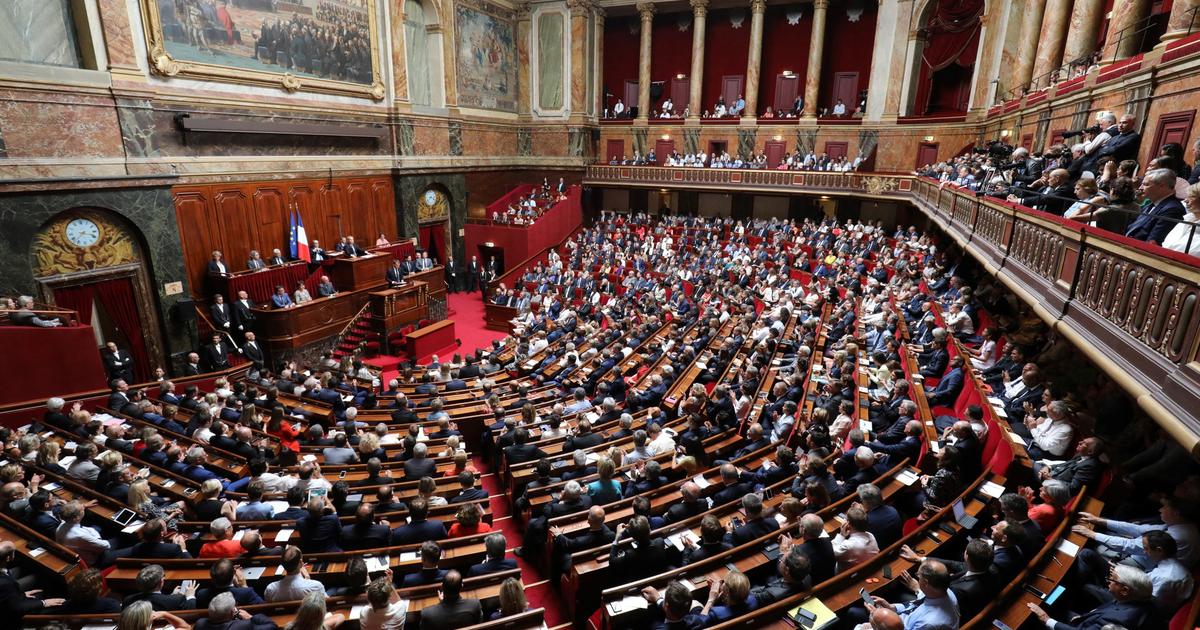Philippe Fabry is a historian of institutions and political ideas, and a lawyer. He has published, among other things,
Islamogauchism, populism and the new left-right divide
(2021),
The Absolute President, the Fifth Republic against Democracy (2022)
and
The Fall of the European Empire
(2022).
He analyzes and comments on national and international political news on his Youtube channel: @PhilippeFabry.
The French regime is not, as is often claimed, a possibility like any other in the spectrum of democratic regimes, but a total exception with regard to the institutional standards in force in democratic Europe: the Head of State It is not, in practice, distinct from the head of government since the President of the Republic chairs the Council of Ministers.
Instead of being, as in neighboring countries, responsible to Parliament, the real head of the executive in France is irresponsible and irremovable during his term of office, while conversely he holds the National Assembly under the threat of dissolution.
These notable particularities, which may seem trivial, imply a general economy of institutions that is radically different from the
balance prevailing everywhere else, and resulting from centuries of European constitutional empiricism.
The supposedly semi-presidential regime is actually hyper-presidential in nature.
The function crushes everything, and more and more over the constitutional reforms of the last thirty years.
It impoverishes and radicalizes public debate by making its conquest the major political issue, to the detriment of any search for compromise.
Read alsoMaxime Tandonnet: “Never has the Fifth Republic looked so much like the Fourth”
election of the President of the Republic by direct universal suffrage was adopted by a violation of the Constitution ratified by referendum – in the time of Louis-Napoleon Bonaparte, one would have said by plebiscite.
A structurally authoritarian regime that took hold despite the departure of General de Gaulle, a regime that constituted a sort of reversal of the constitutional crisis of 1877 and brought France back to a "pre-publican" regime that Maurice Duverger described as
"republican monarchy"
and which can just as well be described as elective autocracy.
For lack of being formulated and debated by the intellectuals of the nation, the question of the non-democratic character of the institutions has become a subject of instinctive anger, formulated by the street.
Philippe Fabry
This regime has aged, and the internal imbalances of the Constitution have done their work: the latter, by having the Council of Ministers chaired by the President, whose electoral legitimacy is superior to that of Parliament instead of proceeding from it, has an authoritarian slope that we keep descending.
Democratic culture, that vast set of habits, prohibitions and rules of propriety which make, more than any constitutional text, functional parliamentary democracies, withered away as the actors who had known the before 1958 passed the hand.
Therefore, for twenty years, nothing has prevented the fatal Constitution of the Fifth Republic from giving the full measure of its imbalances, and the presidency of the Republic is increasingly authoritarian.
This is why there is nothing left for the regime but the path of radical reform, failing which it will have to undergo a revolution.
Because a nation-state as mature as France, which is older than most of its neighbors, except England, cannot endure an authoritarian regime in the long term;
parliamentary transition is an organic necessity there, which is why during the second half of the 20th century all of France's immediate neighbors made this transition (Italy 1947, Germany 1949, Spain 1975).
The regression of France is a historical accident, an anomaly which is coming to an end and requires a return to the parliamentary regime.
which is older than most of its neighbours, apart from England, cannot endure authoritarian rule for long;
parliamentary transition is an organic necessity there, which is why during the second half of the 20th century all of France's immediate neighbors made this transition (Italy 1947, Germany 1949, Spain 1975).
The regression of France is a historical accident, an anomaly which is coming to an end and requires a return to the parliamentary regime.
which is older than most of its neighbours, apart from England, cannot endure authoritarian rule for long;
parliamentary transition is an organic necessity there, which is why during the second half of the 20th century all of France's immediate neighbors made this transition (Italy 1947, Germany 1949, Spain 1975).
The regression of France is a historical accident, an anomaly which is coming to an end and requires a return to the parliamentary regime.
The fundamental debate on the nature of the 5th regime still existed in the 1990s, with the publication of
L'Absolutisme ineffective
by Jean-François Revel, but died out with the gradual disappearance of the generations of politicians and media people who had experienced the Fourth Republic.
For lack of being formulated and debated by the nation's intellectuals, the question of the non-democratic nature of the institutions has become a subject of instinctive anger, formulated by the street: the only demand for which there is unanimity in the revolt of the "yellow vests was the citizens' initiative referendum, a somewhat simplistic hope of reinjecting democracy into the regime.
Read alsoWhat future for the institutions of the Fifth Republic?
The election of a parliament without a possible majority, two months after the re-election of Emmanuel Macron, gave hope that a peaceful transition was possible if the president took note and, like Jules Grévy succeeding Mac Mahon, declared that he renounced his right of dissolution and that he would no longer chair the Council of Ministers.
There would then have been a relatively peaceful evolution, as in the first decade of the Third, towards a functional parliamentarism.
We would have returned to European standards.
Alas Emmanuel Macron took the opposite side, that of authoritarianism: he appointed Mrs. Borne "Prime Minister" (non-existent function according to the text of the Constitution, which is in the masculine) without charisma or electoral legitimacy, like moreover his predecessor John Castex.
Simple executant, he made him put his responsibility before the Parliament at stake eleven times in a row, depriving the latter of his function of discussion, and de facto established a system in which the President of the Republic holds the legislative power when there is no majority
against
him in the Assembly.
Thus, while everything from the new composition of the National Assembly to polls indicating that the French were satisfied with this composition showed that the people wanted, in the normal course of things, a transition to a more parliamentary system, Emmanuel Macron has decided, against the entire population, to refuse this development.
Worse: on a subject that has been at the heart of the French social pact since the Liberation, the question of retirement, he has decided to do his toughest act of authoritarianism.
By a path that remains to be discovered, Emmanuel Macron will be forced to resign, since it is unlikely that he will agree to submit.
The Fifth Republic will not survive it, because no one will want to see Marine Le Pen rise to the empty throne.
Philippe Fabry
Logical consequence of this choice against the grain of history: the country is gradually plunging into popular insurrection.
"Revolution 2023", and its derivatives, is trending on Twitter.
But above all, on most television sets, the debate on the relevance of our Constitution is resurfacing, with salutary vigor.
We note the incongruity of our constitution in Europe, which resembles more that of Putin's Russia than that of our neighbours.
We read our neighbors astonished at the crushing of our Parliament by this all-powerful President.
The ingredients of the fall of the regime come together: the rebellion in the street, the discourse on the failings of institutions in people's minds.
The question is no longer pension reform, but democracy.
The regime will fall.
By historical necessity, by incompatibility with French society.
By a path that remains to be discovered, Emmanuel Macron will be forced to resign, since it is unlikely that he will agree to submit.
The Fifth Republic will not survive it, because no one will want to see Marine Le Pen rise to the empty throne.
And to those who think that the president is elected by direct universal suffrage and therefore that he has democratic legitimacy, remember that Viktor Yanukovych was elected president of Ukraine according to this method of voting...
This did not prevent him from being driven out into the streets to the applause of the democratic world.

